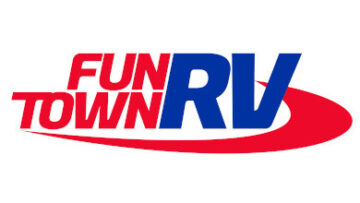Blog: Customers Don’t Always Know What’s Best for Them
 Morin
MorinLet’s face it, walking through and looking at RVs at the dealership sure is fun. With all the advancements, technology and improvements made by manufacturers, it’s easy to envision yourself living in one. However, this creates somewhat of a problem. It’s easy for customers to fall head over heels in love with all the cool features in RVs today, but that opens the door for irresponsible buying decisions—if the salesperson allows it to happen.
Allowing a customer to buy something with features and amenities that don’t complement how they plan to go camping opens the door for that customer returning in 30 days and accusing the salesperson of selling them something that doesn’t fit them just to make a sale.
That’s not the only problem. Once their new toy is registered, titled and the customer drives it home, it goes from being classified as a new RV to a used RV, worth 20-24% less than what the customer just paid for it. In the customer’s mind, it’s still new, but not in the eyes of any dealership. So now there’s a real math problem in working out a deal on another RV, regardless of paying cash or financing.
Even if the customer is convinced that they must have 3 TVs or a convection oven in their RV, the salesperson must take steps to confirm if this matches their plans to use it, by doing the following:
First, take the time to allow rapport and trust to be built
Possibly the hardest thing to do early in the customer visit to the dealership is to slow customers down to get to know and trust the salesperson. This is a critical step, and one not to be missed. No matter how nice the RV is and how great the price is, if rapport and trust is not established, the sale likely will not take place. Absent this step, customers tend to struggle to make the decision to buy because it just doesn’t “feel right” (even though they can’t explain why). Often, they turn into “Mr. & Mrs. I want to think it over” and leave the dealership, often never to return.
Ask detailed questions on how the customer plans to use their RV
No matter how excited the customer is to bust out the back door and look at every single RV in the lot, the salesperson must slow them down enough to realize that it’s in their best interests to discuss where they plan to go, how they plan to camp (dry camping or RV Park with all the amenities), who will travel with them and what activities they might do while on their vacation. Identifying these things can eliminate unnecessary features that might raise the price and their monthly payment.
Sleeping space
Knowing how many people will permanently or temporarily camp with them will determine the number of rooms, sleeping options and even the size of the RV.
Ease them away from bad advice
It amazes me just how many customers listen to horrible advice given to them by people who have never owned an RV, worked at a dealership, or have no idea what they’re talking about, yet second-guess a salesperson who knows their product inside and out. As a result, they come into the dealership with must-have features their broke brother-in-law insists they need in their RV, even though it doesn’t match how they plan to use it. I have had customers demand having an outside kitchen when they have no intention of ever cooking on it, because someone at the campsite advised them that it was critical to have.
Competition with others
You might be surprised just how often customers want features that they don’t need or want only because they are caught up in a competition with a neighbor or the campsite next to them. In this one-upmanship line approach, one thing that gets missed is how much these unnecessary things add to the price. Salespeople must uncover this in their questioning to avoid adding unnecessary features based on this irrational thinking.
Storage
You would be shocked at how many customers walk into a dealership to buy an RV without ever knowing or thinking about where they might store it when not in use. This includes temporary in-season storage when the customer needs quick access to the RV between camping trips. Another important piece of information is city and town zoning or HOA laws that may not allow for temporary parking on the street or in their own driveway.
Salespeople need to be curious, investigative reporters to get all the information needed to show their customers the RV that makes sense for them and nothing else.
Thomas Morin is a veteran corporate executive, business owner and career coach. After joining Alpin Haus in Amsterdam, N.Y., Morin quickly became a top RV salesperson and was named trainer for all new salespeople in the dealership. He was subsequently promoted to sales manager, followed by director of employee development, training/coaching for all RV salespeople in the company. Morin is a certified life and career coach. For more information on Morin and his coaching business, visit his website at: www.unlockyourcareercoaching.com



